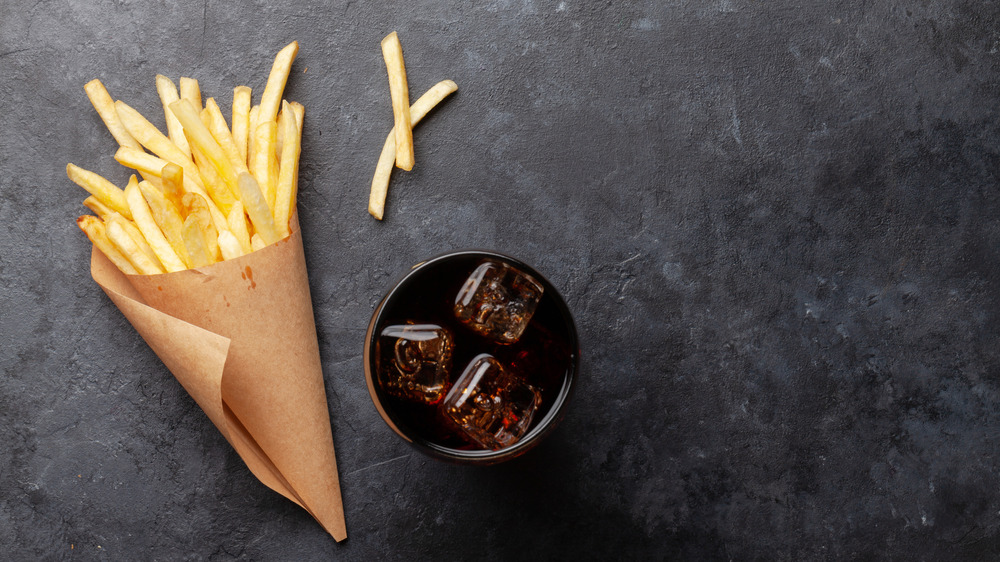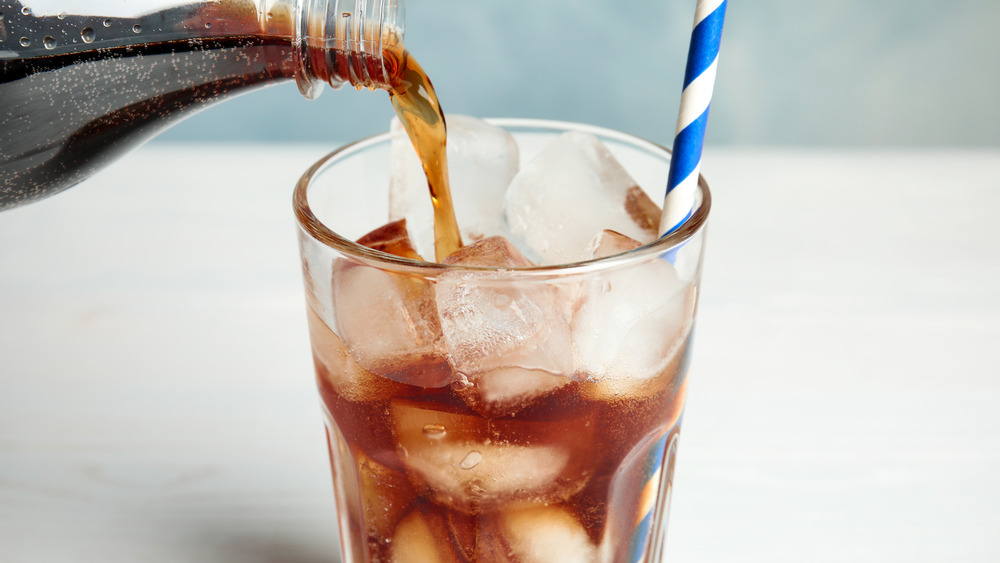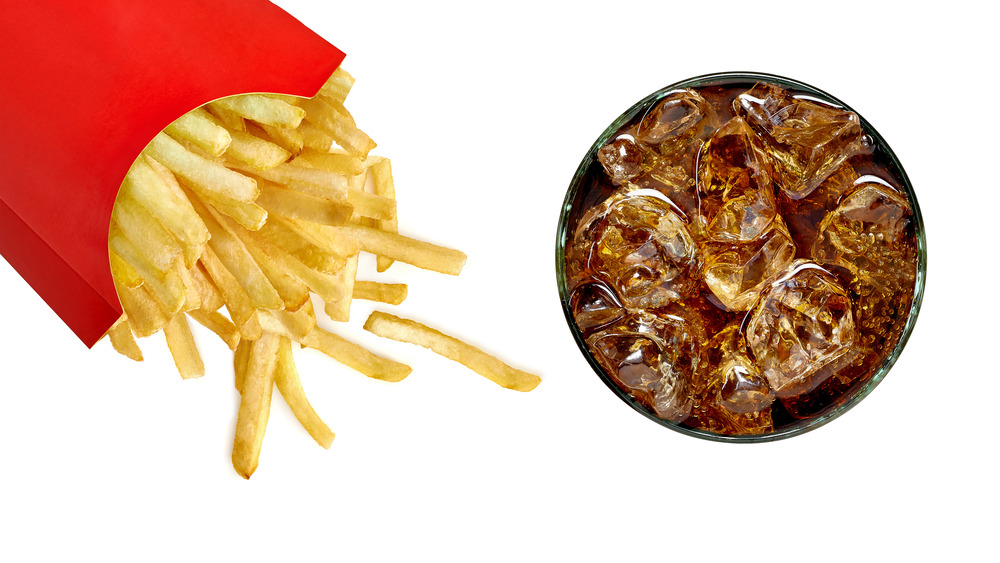The One Drink You Should Never Order With Your Fries
Washing down the saltiness of an order of warm, crispy french fries with a fizzy diet soda might seriously satisfy your taste buds in the moment, unfortunately enjoying the two together appears to actually lead to legitimate neurological damage that may disrupt the body's natural processes for metabolizing sugar (via Inverse). The combination of french fries and diet soda may sound harmless on paper (and taste delicious in your mouth), but a small study run by Yale University-based researcher Dana Small found that ingesting sucralose and carbohydrates at the same time can confuse the brain, rendering it ineffective when it comes to telling the body how to properly metabolize sugar and ultimately leading to a host of serious health problems. Sucralose is a common artificial sweetener found in many diet sodas; you may have also seen it (or even purposely added the sweetener to your cup of coffee to tea) under the brand name Splenda.
Small likened the effect that artificial sugars like sucralose can have on the brain when consumed alongside carbohydrate-rich foods like french fries or pizza to a "circuit change" within the cerebrum, as the brain's natural communication systems within the body become damaged. And with no certainty on whether the brain has the capacity to eventually correct itself from this change or not, it is important to know the risks involved when drinking a diet bubbly fountain drink alongside greasy fries before arriving at your next fast food drive-thru.
The ugly truth behind diet soda
A serving of diet soda may seem like the health-conscious choice for a consumer looking to lower sugar and calorie intake, as the word "diet" implies health-conscious ingredients. Not only does sucralose have less calories than regular sugar, Inverse shares the ingredient is also sweeter, meaning in theory you can use less of it for the same result. One can of Diet Coke, for example, boasts zero calories, sugar, or fat (compared to regular Coke's 140 calories and 30 grams of sugar — though still no fat, says Coca-Cola), but studies suggest that the artificial sweeteners used in diet sodas can do more harm than good (via Healthline). According to the National Library of Medicine, some of the most common artificial sweeteners found in diet sodas are aspartame, cyclamates, saccharin, acesulfame-k, and sucralose, and Healthline states that every mainstream soda manufacturer — from Coke to Pepsi to Sprite — offers a "diet" or "light" variation of their most popular bubbly beverages.
As reported by Harvard Health, one study found that drinking diet soda daily can increase the consumer's risk of developing type 2 diabetes by 67 percent. The same study also found a 36 percent higher chance of developing a metabolic disorder, and an increased chance of weight gain, which seems like the opposite outcome diet soda drinkers are likely hoping for. According to Healthline, individuals who ingest diet sodas are also subject to increased risk of high blood pressure, heart disease, and kidney disease. Not exactly what we think of when we think "healthy."
Consuming fries and diet soda affects the brain
In addition to the health risks posed by the artificial sugars found in diet soda, it is important to consider what happens when carbs are consumed alone. Two processes happen within the body when carbohydrates are ingested: first, glucose (blood sugar) and insulin levels go up, then the insulin transports the excess glucose into your body's cells to be used as fuel, which in turn brings blood sugar levels back down to normal (via Consumer Reports).
When you introduce sucralose to the mix, however, the combination of the two substances causes the brain to change how the body interacts with the insulin responsible for lowering glucose levels: the cells can become resistant to insulin, and with it still having an overflow of glucose that has nowhere to go, the brain can trigger the body into producing more insulin in an attempt to return to blood-sugar homeostasis. According to Inverse, when this process is continuously repeated, it puts the body at a higher risk for developing type 2 diabetes as well as accelerates weight gain.
To avoid the health risks that come with consuming carbohydrates and diet soda simultaneously, Health Digest says it is best to drink the diet soda by itself and limit carb intake to one hour before you gulp down the artificially-sweetened beverage and one hour after. This gives the body enough time to process the sucralose without affecting how it interacts with the brain during a carb-induced rise in blood sugar.


